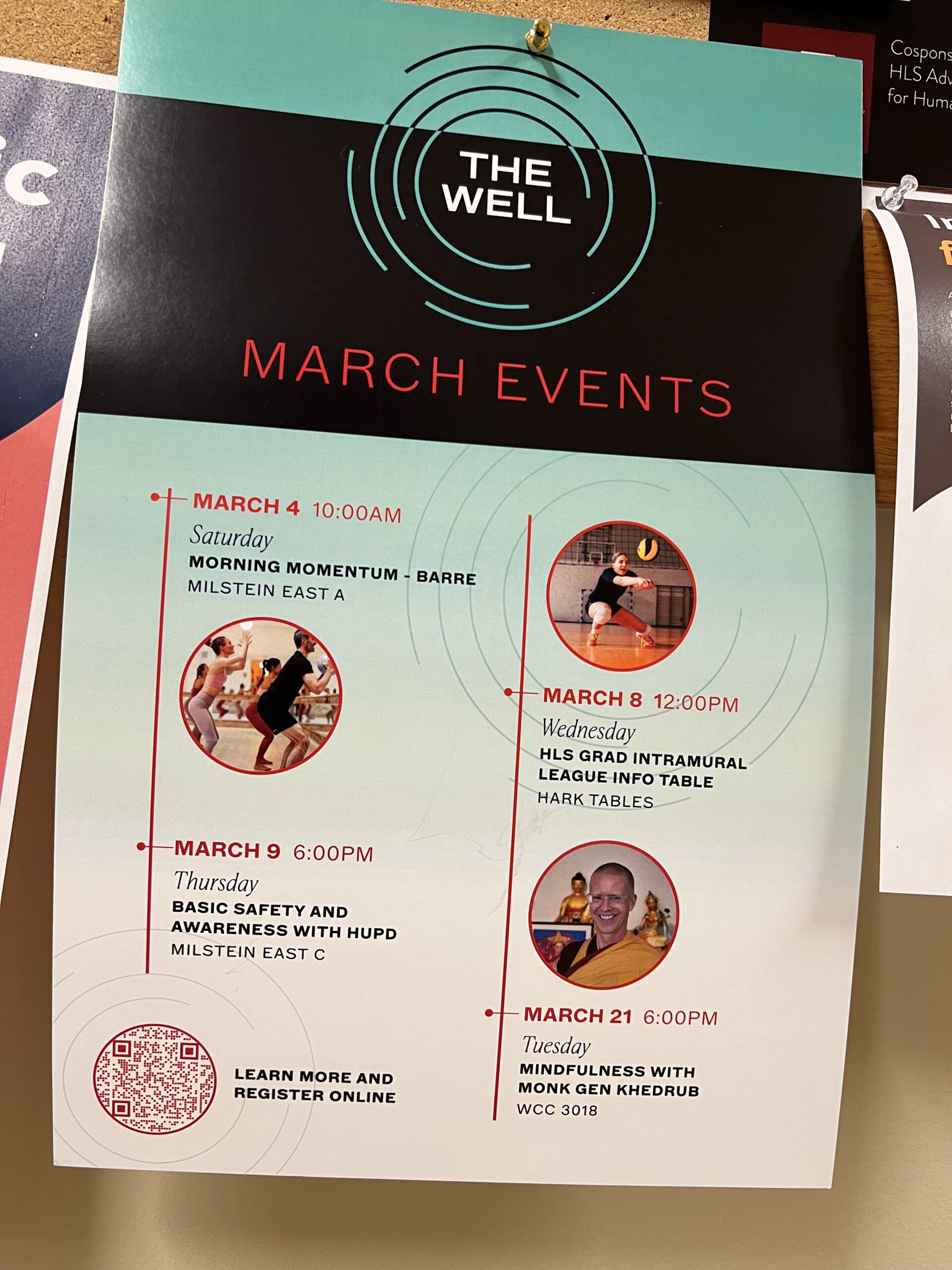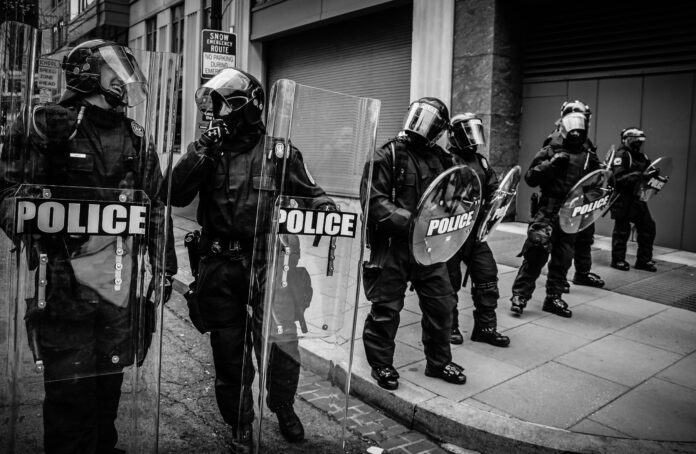In October 2021, Harvard Law School launched The Well, an initiative characterized as HLS’s “community effort to destigmatize mental health and prioritize well-being.”
“Think of The Well as a source of support. A hub for dialogue. A space for sharing needs and accessing resources,” reads The Well’s website.
As part of this initiative, The Well hosts “Wellness Events.” While their efficacy in alleviating the intense stress that the law school burdens its students with is debatable, most of these events are inoffensive—think yoga, meditation, or arts and crafts.
But one such event this week caught our eye. On the evening of March 9th, The Well will host “Basic Safety and Awareness with HUPD.” This class will, according to its description, “empower students, faculty, and staff to combat various types of assaults by providing them with realistic self-defense tactics and techniques.” HUPD—the Harvard University Police Department—will “cover safety awareness, risk reduction, and risk avoidance and provide attendees with the knowledge to make educated decisions about safety and resistance.”

We are upset and disappointed that The Well would choose to partner with HUPD for an event. Police, and the institution of policing, are not compatible with wellness. As an inherently violent institution, police are far more likely to cause harm than promote wellness—however wellness is defined or measured.
For one, police are renowned for not knowing how to respond to mental health crises without violence. When police show up at the site of crises, the chance for violence increases dramatically. Disabled people are generally much more likely to experience police violence than non-disabled people, and that risk only increases for Black disabled people.
The structure of policing is simply not designed to promote mental wellness. The average police recruit only receives eight hours of “de-escalation” training; a paltry amount when compared to the 58 hours of firearms training and 49 hours of “defensive tactical training” that they receive. Ultimately, though, the number of “de-escalation” or “mental health sensitivity” training hours that police receive is besides the point. Police officers are not trained or organized to be social workers. They are trained to “enforce the law” and they are authorized to use violence in order to do so. It is no surprise, then, that when officers show up to the scene with mace, batons, tasers, and guns, that they so often respond to mental health crises with violence.
The only public safety responses that actually help people experiencing mental health crises are ones that explicitly do not involve police, such as CAHOOTS or Cambridge’s own Holistic Emergency Alternative Response Team (HEART), which was started by The Black Response in response to the violence that individuals experiencing crises were facing at the hands of police.
Moreover, the presence of police violence in America has been shown to cause stress and anxiety even when individuals are not directly hurt by police. Studies have shown that Black people especially are generally prone to higher levels of stress as a result of being constantly surrounded by images and instances of police violence.
The description for this event claims that attendees will be empowered to defend themselves if they’re attacked by a hypothetical assailant, yet it will not empower attendees to defend themselves if that assailant happens to be a uniformed police officer. It does not mention that police officers are, for example, more likely than civilians to be the perpetrators of sexual assault. The class says it will allow attendees to make educated decisions about resistance, but it almost certainly will not talk about the violent consequences of resisting arrest.
We do not mean to say that self-defense is never justified, or that learning to defend oneself from harm is a bad idea. But real safety is rooted in community, and there are countless ways to find safety without asking campus police. And speaking of awareness: it would behoove The Well to have some.
Disclosure: Marty Strauss, Editor-in-Chief of The Record, is on the NLG Executive Board and was one of the writers of this piece.


